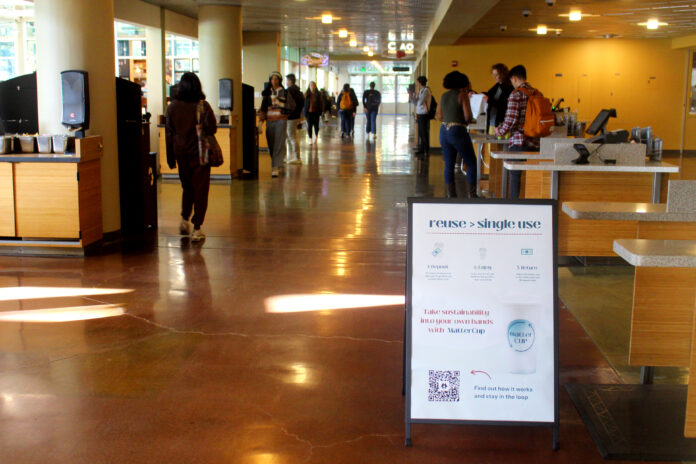The ranking is based on multiple environmental measures that assess the overall sustainability of each campus
By RACHEL GAUER— campus@theaggie.org
UC Davis was ranked the No. 1 most sustainable campus in North America this year for the seventh year in a row, as well as placing fifth world-wide, according to a measure by UI GreenMetric.
The UI GreenMetric ranking, originally created in 2010, uses a point system based on several criteria to rank over 300 universities’ overall environmental sustainability efforts. Each university is ranked in several categories, including transportation, education and research, infrastructure, energy efficiency and climate change response, waste and water.
Camille Kirk, the director of sustainability and the campus sustainability planner at UC Davis, reflected on the university’s ranking.
“It is nice to be recognized internationally for our work to become more sustainable,” Kirk said. “It gives us an opportunity to pause and express [gratitude] for what we have done, and it also gives us nice motivation to continue our work together at UC Davis toward a more sustainable campus and world.”
Kirk noted that compared to last year, the university’s energy and climate change category scoring has improved. Last year, UC Davis received a 1650 score in the category. This year, the score jumped to 1775.
She attributed this increase to several projects that Davis has either implemented or improved during the past year, including the Unitrans bus electrification project, which introduced six electric buses to the system in September.
Kirk also said that projects like the Sheepmowers — a research project in which sheep graze in various grassy areas on campus as an alternative to traditional mowing — are particularly important because they engage the campus community in sustainability efforts.
“A key strength and ‘secret sauce’ behind sustainability work at UC Davis is the strong amount of collaboration among many partners and stakeholders — staff, faculty, students and community members,” Kirk said. “It takes all of us to make a more sustainable UC Davis.”
Amelia Swanson, who serves as the co-president of the Zero Waste and Sustainability Club, also attributed UC Davis’s overarching sustainability to campus-wide involvement.
“I feel like we have a lot of organizations and classes on campus that make people very motivated to make campus more sustainable,” Swanson said. “We also have so many environmental sciences majors, and I think having a bigger population that is aware and wants to make a difference in the environment helps a lot.”
The Zero Waste and Sustainability Club receives funding from The Green Initiative Fund (TGIF), which is a campus program that strives to fund student-led projects that promote sustainability, according to their website. Many of the sustainable projects on campus are supported by the fund, as they award between $100,000 and $200,000 each academic year to various campus projects.
Morgan Olsen, a second-year design major, spoke about her environment project that received funding from TGIF. Olsen added compost bins in every dorm room of Kearney Hall, and plans to compare Kearney’s waste to that of another hall in order to assess the impact of the bins.
“My project [aims] to reduce carbon emissions by studying if first-year students compost more when they have access to compost bins in their dorm,” Olsen said. “If the increased access to composting [decreases] the waste going to landfills, student housing can expand to include small compost bins in every first-year dorm.”
Kelly Abey, who serves as the vice chair of the Environmental Policy and Planning Commission (EPPC) and is also a committee member of TGIF, explained the contributions of TGIF to the university’s overall sustainability.
“TGIF reinforces direct undergraduate involvement in sustainability on campus, which also benefits the rest of the campus population,” Abey said. “The committee is also run by majority undergraduate students.”
Abey noted that during the recent ASUCD election, TGIF’s fee renewal measure failed due to low voter turnout. Abey said that there could be a significant impact on campus sustainability if the measure does not pass during the coming spring 2023 election.
“If we were to fail once more, TGIF will be forced to sunset, which would severely damage the sustainability credibility UC Davis has built for itself and would mean less undergraduate sustainability efforts on campus,” Abey said.
Written by: Rachel Gauer — campus@theaggie.org




